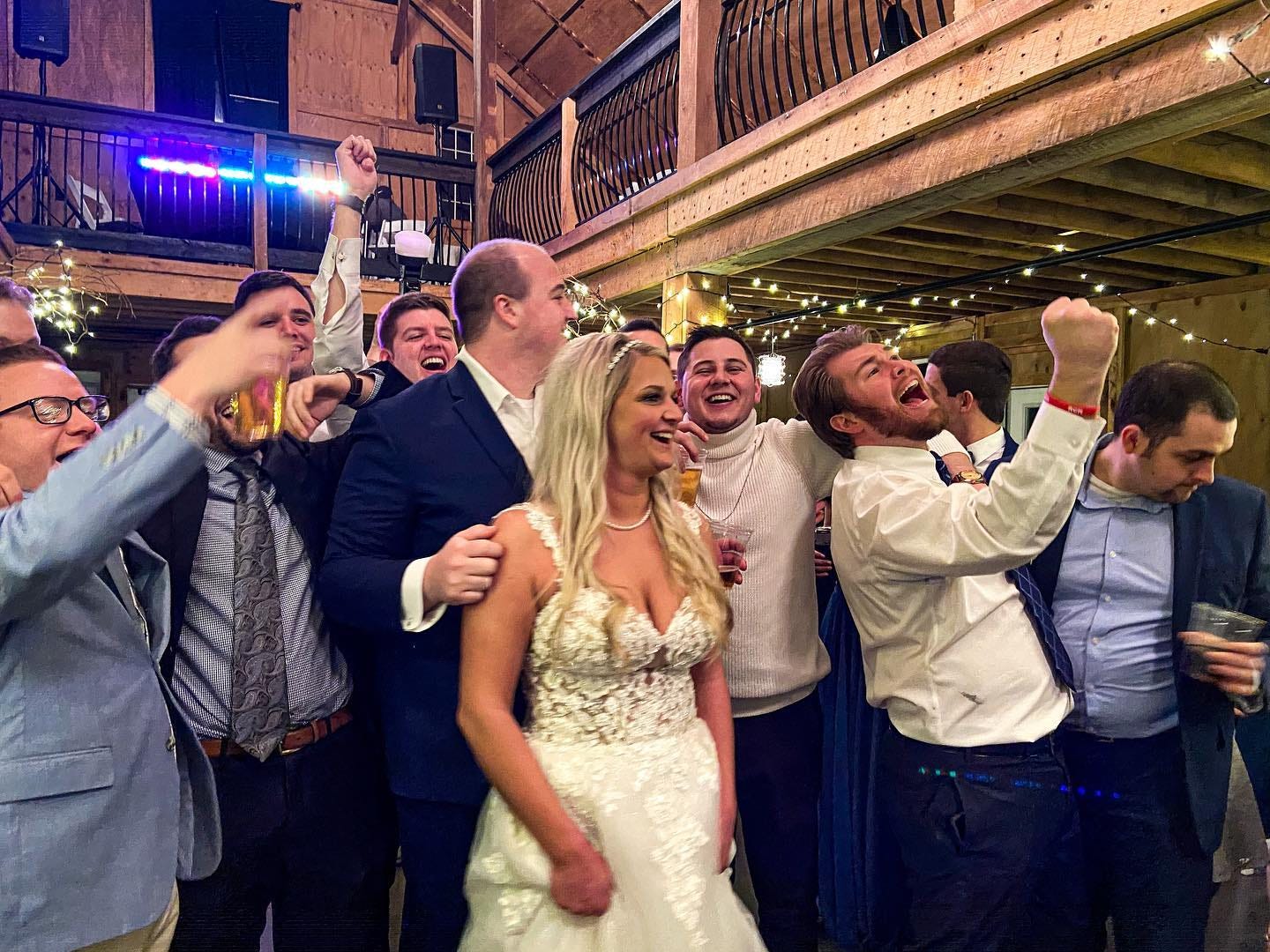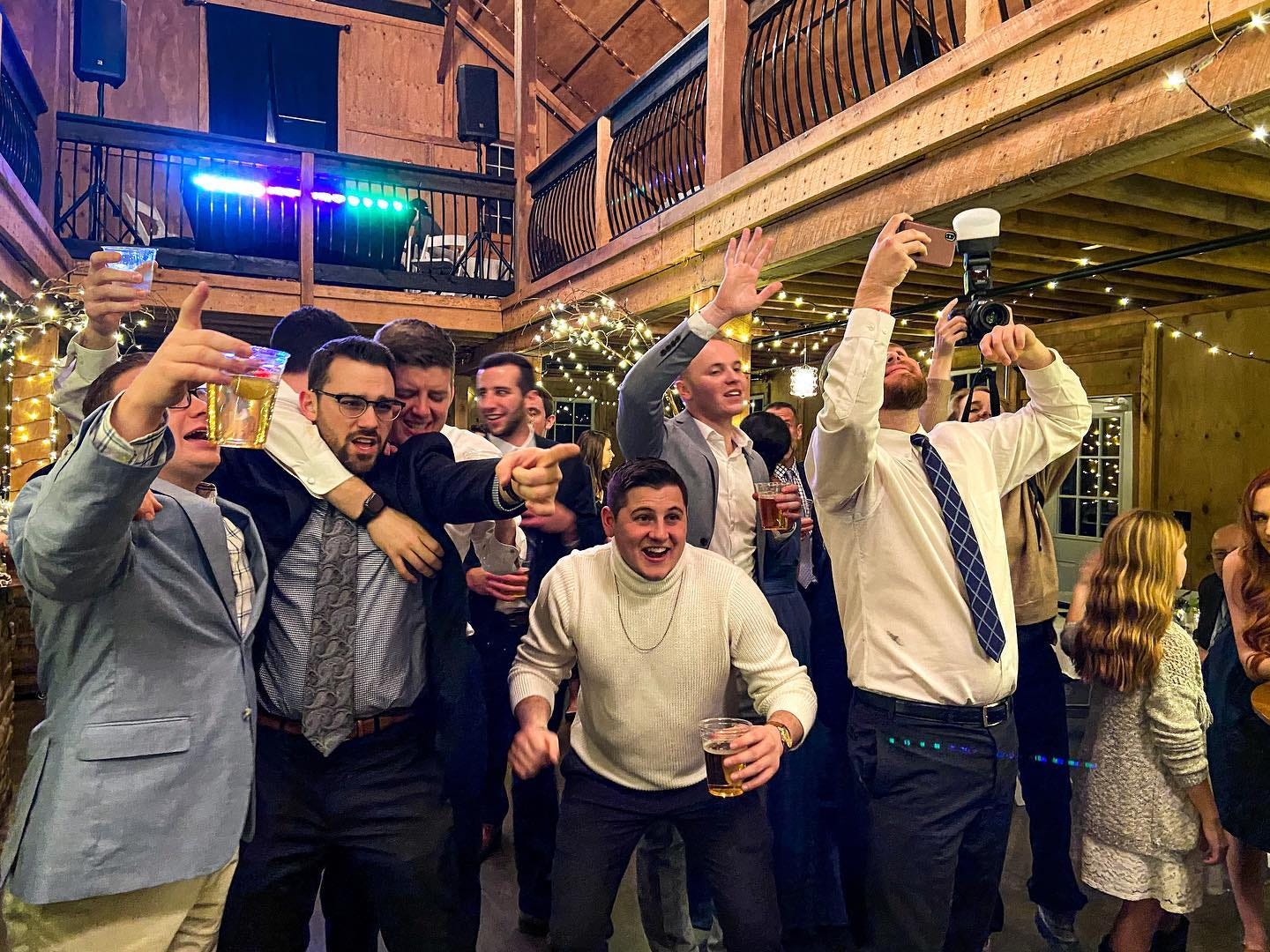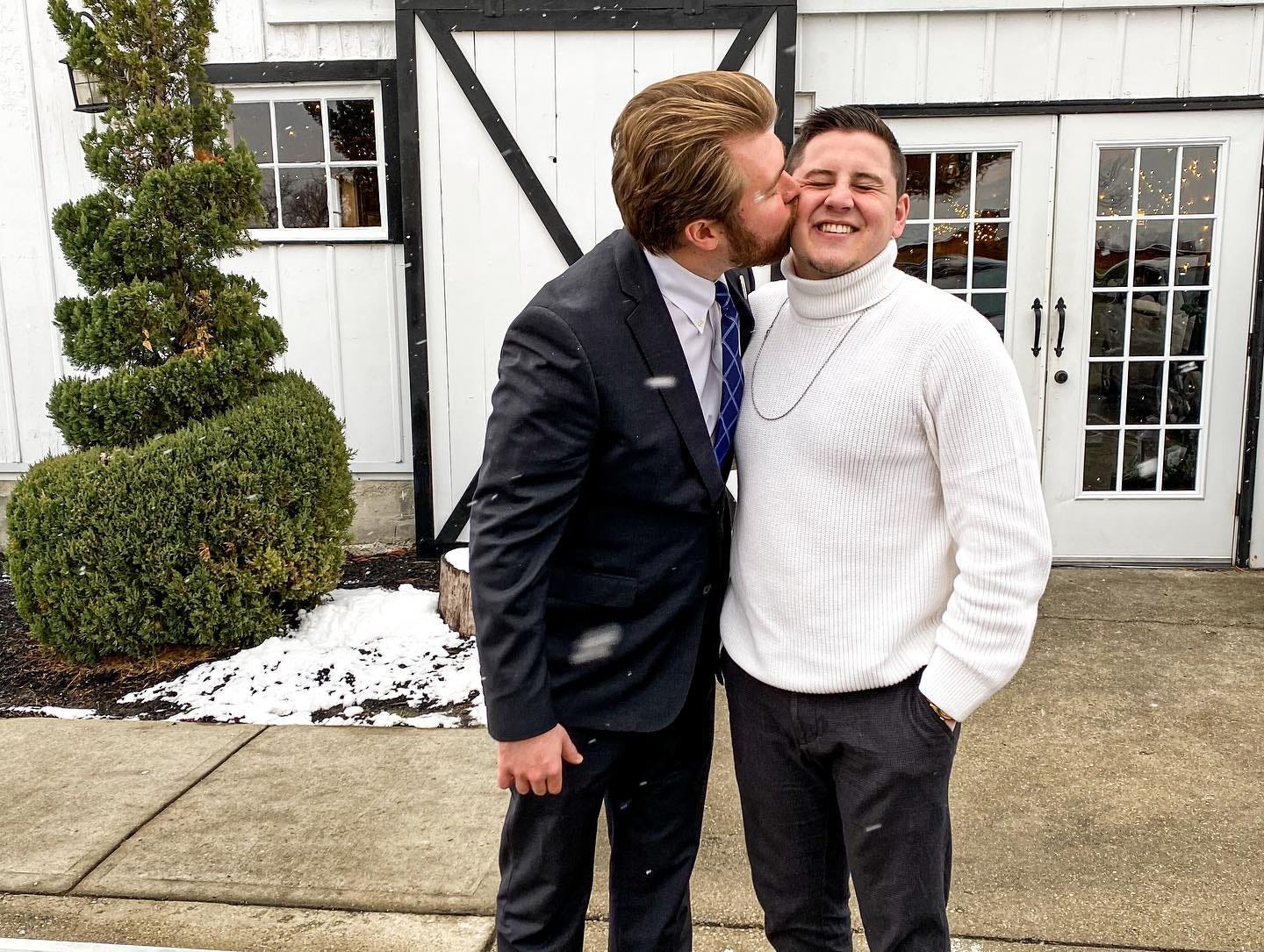Happy Monday, friends. For this newsletter, I wrote about being a man, mental health, toxic masculinity, male friendships, and more. I hope this is good for men to read to explore their emotions and I hope this is good for women to understand the male psyche a bit more. This is an inclusive newsletter, so I apologize for the cisnormative conversation. I don’t feel confident enough in my platform to write about the experiences of trans or intersex people but I want to be clear: trans rights are human rights and our gender roles/cisnormative society needs to change to become more inclusive of all genders. Maybe this column, by exploring toxic masculinity and how it harms other people, can be a step in the right direction.
One more thing! This newsletter has been some of the most fun I’ve ever had and I’m so thankful for the support. I’ve been wanting to monetize my writing for a while now so that I can spend more time on it and promote it more, so just a heads up: I’m going to come up with an idea for how best to do this. You can do subscriptions on here where people pay $5 to access newsletters, but I really don’t want to do that. My current thoughts right now are that I’ll create a PayPal account or something so people can donate money to support my writing. I don’t love this idea, but I feel much more confident as a writer now and think it’s right that I find a way to make a little money off of it so I can dedicate more time to it. Please, please let me know (you can comment on these posts now! or just reply to this email) if you’d be willing to contribute a few dollars as a one-time donation or a recurring monthly donation to help expand this project. I’d like to gauge the feedback on this. Thanks so much in advance. My readers make my world a bit brighter.

Yesterday, one of my best friends got married in a beautiful ceremony followed by a few hours of dancing and celebrating with some of the most important people in my life. These guys are my brothers, bound by over a decade of memories, conversations, emotions, all positive and negative. Over the years, I’ve realized how important these relationships are to me.
It probably isn’t a shock to anybody that mine and my sister’s relationship was complicated. I saw her in a different light than most others. Alyssa and I had a bond that transcended so much about our lives; We could share a glance and immediately know what the other was thinking. I loved her so much and was incredibly tough on her my entire life. I was tough on her because I was so scared to watch her die. I was scared that her death would rip my family apart through grief and I was angry at God and then the universe and then science and DNA that she was confined to hospital rooms while I was living life. I held her to an impossible standard; she was the only person in the world for whom I had higher expectations than myself. The hardest part of it all was that my sister lived an existence that I feared I’d live one day and her sickness forced me to reconcile with death from a very young age. I may have had CF, but it was my sister’s sickness that taught me how cruel CF can be. I’ve always been a realist. How I viewed my sister’s prognosis was no different. Ever since I learned about the life expectancy for people with CF when I was ten, I assumed we would both die from it but I wasn’t ignorant to the reality I’d likely live much longer than her.
I found an escape. My escape was my friends. My friends allowed me to see what life was like outside of my health and struggles with my sister. When I think about my memories with my friends compared to my memories with my sister, my memories with my friends always carry a lighter tone. The memories stored in my head of me and my sister always feel a little heavier. For the five to ten years before her death, I couldn’t shake the horrible nagging feeling that we were living on borrowed time, waiting for her lungs to fail or for her body to reject her lungs. It’s true we’re all living on borrowed time but for most of us, that borrowed time isn’t a quickly emptying hourglass. My friends provided a sense of normalcy when it felt like life needed it. They allowed me to escape my fate for a few hours at a time. My friends allowed me to envision what life would be like without my sister.
My friends became as close to me as a sibling could be. And while my relationship with Alyssa was absolutely different than my friendships, these friendships allowed me to be a better brother and to better understand how I should appreciate my time with her. They gave me a space where I could talk about my struggles but without feeling like I had to be particularly careful of how my parents or sister would respond to the heaviness of conversations. These men — they were teenage boys at the time — became the rock I needed when I felt like I was the rock of my family (true or not). I was able to be outside of the identity I felt God had bestowed upon me. The importance of males, especially teenage boys, to have a space where they can appropriately process emotions is critical for the development of future generations of men. I’m deeply thankful I had peers who loved and supported me when I desperately needed it.
This isn’t to say it has always been perfect. Of course there have times I've felt some of my friends could be more understanding or supportive, as I’m sure there have been times they’ve felt the same about me. In the moments they needed to be there, they have been. I look back fondly at the time a few weeks before Alyssa died. I reached out to our group of guys — affectionately called The Cold Boys — to let them know that Alyssa’s life was soon coming to an end. The solidarity was profound; they all expressed love, support, jokes, and stories about Alyssa. They were sure to tell me they were there for me and my parents and would be no matter what or when throughout the rest of my life, ensuring they would be brothers to me as they had been and forevermore.
As men, we have to love each other. We have to learn how to platonically love other men and we have to learn how to express sentimentality; we have to learn how to healthily process emotions and we have to learn to recognize the world isn’t always on our shoulders. We cannot have a false perception of what masculinity is. Masculinity is not treating people poorly or remaining stoic all the time. Masculinity is not toting guns or bigotry. Masculinity is not holding back tears for fear that we’ll be labeled effeminate. We cannot allow for masculinity to be defined as anything that allows for others or ourselves to be treated poorly because of it. We all process emotions differently and we all have different ways of reflecting, relaxing, and recharging. It’s vital we find ways to do this in a healthy way, but treating women badly or telling other males to “grow up” or “be a man” when they’re struggling is not the way. We have to be better so other men know there exists a space to be emotional and talk about their struggles so they do not feel like suicide is the only way. Male suicide is an under-discussed epidemic in America; tragically, men are 3.5x more likely to die by suicide than women. There are more than 45,000 suicides every year; about 35,000 of those are men.
Cystic fibrosis and the fragility of life have been present in the forefront of my brain for as long as I can remember. CF sucks in most ways, but it has had one positive effect for me. It has acted as a filter that helps me look at life differently because of it. I struggled with an existential crisis from a young age. What could have been tragic ended up turning into one of my greatest strengths. If I didn’t have a comfortable space — through a tight-knit group of friends and family — processing such a heavy concept at such a young age could have sent me down the wrong path. I had friends there to help me create memories and try to make sense of a devastating realization; I had a family that loved and supported me every step of the way.

I’ve found that, as we grow older, if we don’t resist our worst impulses, it becomes easier to judge others for the way they process the world around them and for their circumstances. It’s easy to look at other adults — especially those in subjugated communities such as the homeless, addicts, or impoverished — and blame them for getting that low. It’s easy for us to feel self-righteous because it helps explain a world that is so incomprehensibly unexplainable. It gives us a sense of control to accuse them of destroying their own lives. I can say this because I used to understand this sentiment. I used to feel this way about men who did not process emotion in a healthy way, who instead “chose” to alienate people that offered support or through anger or repression. I used to believe that it was on them to figure it out. I reflect back and realize that my belief that other men processed emotion in unhealthy ways was not much different from their inability to process emotion. They’re two sides of the same coin; what I was basically saying, in a roundabout way, was “be a man and figure out how to process emotion” or “redefine your own masculinity.” Until it finally hit me: if you’ve never been taught how to process emotion healthily, your conception of the world is that this is how men should process emotion. For some men, it’s very likely they never knew the world could be perceived any differently since they’ve never been taught how.
Life is the one experience we all share. It’s true that we have different experiences and we are the products of our genetics and our experiences. We can’t do anything about that. And to pretend that there is a definitive route for life is a deeply incorrect assessment. We must be cautious about our self-righteousness and our supposed beliefs about how we should live our lives. We can become deeply cynical and angry about the world and our lives or we can search for compassion, for optimism. It’s easy, as men, to believe the world is broken and there’s nothing we can do about it so fuck it, may as well learn how to be as unfeeling as possible. But there is another route, I promise you. We can be better; we can believe in a better world; we can make the world better by our ability to process emotions.
The way we process our emotions utilizes the same filter as the way we view the world. When we are deeply cynical, we process emotions in a reactionary way. Why am I angry? Many of us believe anger is a healthy response to triggers and therefore we justify it as a necessary precondition. This doesn’t have to be true. And I’m not even claiming there is no righteous anger! I’m simply encouraging a more nuanced assessment of emotions. We are all better off when we are more emotionally intelligent; it makes us more empathetic people. We treat others better when we better understand our emotions. When we better understand ourselves, we better understand others, and when we better understand others, we better understand the world.
This cascade of filters, processing emotions and the world, and the way we view and treat other men and the women in our lives, affects the way we perceive many topics. When we, as men, revoke our ability to process emotions, we’re robbing ourselves of a more vibrant life. We’re robbing ourselves of the ability to find and strengthen relationships with other men. We’re preventing other men a place to feel comfortable to express emotions that may help them beat depression or anxiety. We have to be better to one another.
I’m eternally grateful for my friends. When Alyssa died, I was terrified I’d become an only child. My boys made that it so that wasn’t true. I encourage my male readers to try to explore their emotions and recognize that masculinity doesn’t have to prevent you from crying or from being there or your friends. If you feel like you don’t know how, please feel free to reach out to me. I’d love to chat. Reach out to a friend you haven’t talked to in a while and check in our how they’re doing. You may have no idea how much they need to hear it. When we become better at processing our own emotions, we become better to everybody else in our lives. Vulnerability is one of the most powerful things we can be.
Kings, support your Kings and Queens.
Thanks for reading, as always. Let me know your thoughts about how me monetizing the newsletter. You can also comment on these posts now which is very exciting. If you enjoyed this, please share!
tl





Love this Tré! So glad you wrote on this after we semi talked about this last week. Thus, I don’t do pay pal but I would Venmo you ;) !
-Madisen